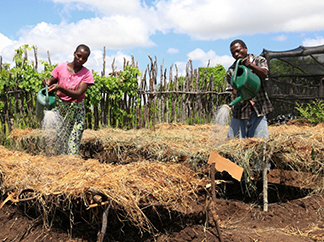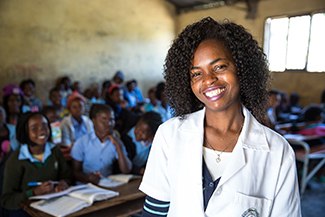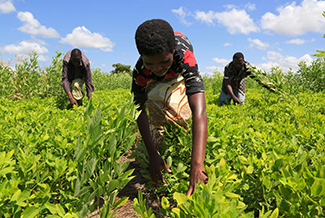consent_cookie
Duración: 1 year
Stores the user's cookie consent state
19-03-2020
The Foundation and the rest of the organizations that are part of Humana People to People follow minute by minute the evolution of the global health crisis that we are currently experiencing, as a consequence of the coronavirus disease pandemic. And they do it both in the Northern Hemisphere and, of course, in the Southern Hemisphere, with special attention to the countries and communities in which development actions are carried out.
Humana's objective in this case is twofold: on the one hand, to comply with the recommendations and guidelines set by national and local authorities and to promote the prevention and protection of the teams and of all the people involved in the cooperation programs.
There are many African countries that have implemented all kinds of prevention and containment measures, closing borders, limiting mobility and taking extreme precautions.
Taking these constraints into account, the activity of Humana and its local partners' cooperation programs continues. In certain cases it has been slowed down to favor prevention, but in general terms the work with the communities is maintained, insisting on issues such as hand hygiene or the limitation of crowds and physical contact, as well as the detection of possible symptom. Awareness, training and information campaigns are also key in this regard. An example is the work that Humana People to People China carried out during the weeks in which the coronavirus crisis was most pronounced for the Chinese population.
In some of the projects, contingency plans are already being activated that assume the temporary suspension of their activities, in line with AECID's Technical Cooperation Offices and the corresponding Delegations of the European Union, reinforcing direct contact with donors and authorities. local.
In Humana's DNA is a long-term vision, a commitment to the sustainability of the actions undertaken, so the fundamental purpose is to continue shoulder to shoulder with the people who need it most.
Impact in developing countries
It is true that the epicenter of the health crisis is currently in Europe. This is an unprecedented event in the modern history of the continent, which is causing citizens to be going through moments of uncertainty, both in terms of their health and socio-economic issues.
However, we must, once again, focus our attention on developing countries, where health systems are much weaker, both in terms of diagnosis and treatment. The capacity for action of the States is much less and the information and training that the population has on prevention is, at best, scarce. Social protection is therefore very small. It should also be borne in mind that immunosuppressed patients are logically more exposed to the consequences of the virus. Recall that in Africa alone there are almost 24 million infected with HIV and an equally high number of Tuberculosis.
The shortage of drinking water in many areas of the continent may be another factor causing an exponential spread reaching a case.
Experts agree that the most appropriate strategy to slow their progress is containment, quickly detecting cases, isolating them, giving treatment and trying to trace their contacts.
The fact that the average age of the population is younger plays in favor of the countries of sub-Saharan Africa, which invites us to think that it may be more resistant to the spread of the virus. The heat of these latitudes may also slow down the spread.
According to the latest available information, more than thirty African countries have registered positive for coronavirus, up to a total of about 600 affected.
Other areas, such as Latin America, should not be forgotten. In Ecuador, for example, a country in which the Foundation works hand in hand with Humana Pueblo a Pueblo, they have already decreed confinement, with the purpose of stopping a possible spread.
The economic crisis unleashed and its possible influence on development policies
In Europe, the consequent financial storm that accompanies it joins the health crisis. UNCTAD has just released a first estimate of the global cost of the pandemic: in 2020 it will amount to around a trillion dollars, while in subsequent years it remains to be determined.
In this situation, the administrations must redouble their efforts, launching economic and social shields, similar to those that countries such as Spain and France have just announced. This will mean allocating huge resources that, hopefully, do not jeopardize official development aid instruments and assistance and emergency programs.


